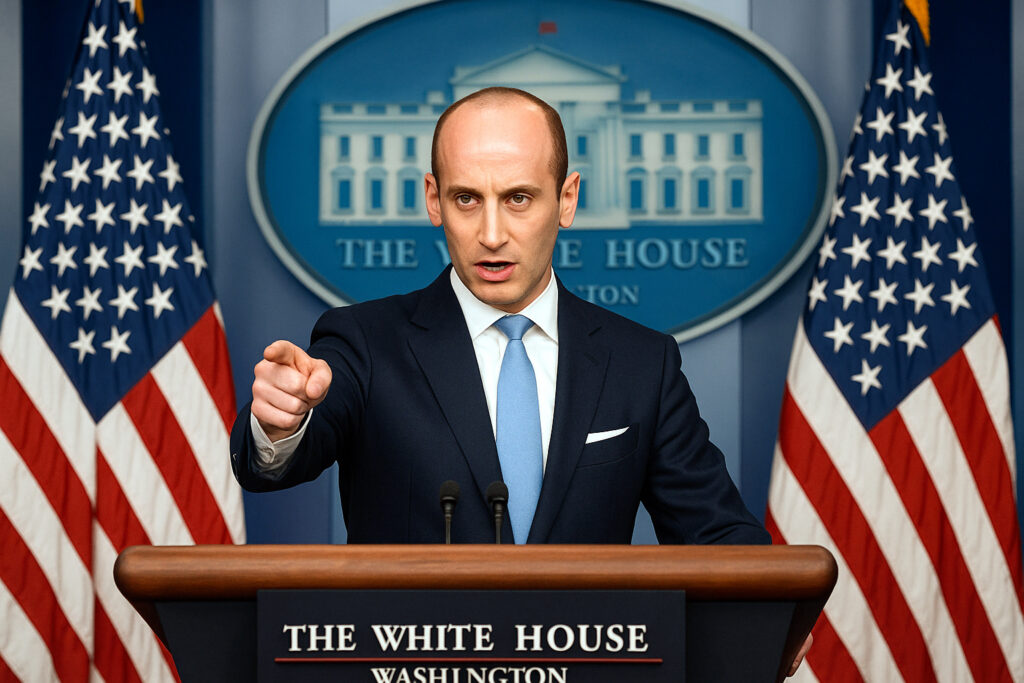 I never imagined the architect of some of the most polarizing policies in modern American history would emerge from the sunny streets of Santa Monica, California. Yet, here we are, with Stephen Miller—a man whose trajectory from a high school agitator to Deputy Chief of Staff for Policy and Homeland Security Advisor marks one of the most influential, and to some, infamous careers in Washington.
I never imagined the architect of some of the most polarizing policies in modern American history would emerge from the sunny streets of Santa Monica, California. Yet, here we are, with Stephen Miller—a man whose trajectory from a high school agitator to Deputy Chief of Staff for Policy and Homeland Security Advisor marks one of the most influential, and to some, infamous careers in Washington.
Early Roots in Conservatism
Miller’s early life hardly hints at the storm of controversy he would later generate. Born in 1985, he grew up in Santa Monica, the son of a real estate investor and a woman with roots tracing back to Jewish immigrants who fled pogroms in Belarus. His political leanings took shape in his teens, galvanized by the words of Wayne LaPierre and Rush Limbaugh. Miller’s activism began as soon as his ideology did—loud and unapologetic. He clashed with the progressive culture of Santa Monica High School, pushing for English-only policies and calling out what he saw as left-leaning bias.
College Years and Political Ascendancy
Duke University was where Miller found his stage. He led conservative movements, defended controversial figures, and organized Islamo-Fascism Awareness Week—a harbinger of the unapologetic stance he would carry into national politics. His writing in the Duke Chronicle showcased a zeal for nationalism and hardline conservatism, a template he would follow for the rest of his career.
Building the America First Platform
Miller’s rise to prominence came through his work with Representatives Michele Bachmann and John Shadegg, and later with Senator Jeff Sessions. His rhetoric grew sharper, his policies more defined. By 2016, he had found his ideological home in Donald Trump’s campaign, drafting speeches and shaping immigration policies that would come to define the administration. From the travel ban to family separations at the border, Miller’s fingerprints were unmistakable.
The Architect of Controversy
Controversy followed Miller’s career like a shadow. His hardline immigration stances drew accusations of xenophobia and cruelty. Leaked emails revealing his ties to white nationalist publications only fanned the flames. Yet, Miller has always been unrepentant, doubling down on the need for stringent immigration controls and stronger borders. His tenure as Senior Advisor for Policy and Director of Speechwriting saw some of the most aggressive policies enacted under Trump’s first term.
The America First Legal Foundation and the Return to Power
When Trump left office in 2021, Miller didn’t disappear. He founded the America First Legal Foundation, designed to challenge progressive policies through the courts. His return to power in Trump’s second term, now as Deputy Chief of Staff for Policy and Homeland Security Advisor, solidified his role as a primary architect of nationalist policy. With new executive orders aimed at ending birthright citizenship and designating Mexican cartels as terrorist organizations, Miller’s influence has only grown.
A Divisive Legacy
To his supporters, Miller is a champion of American sovereignty, a bulwark against unchecked immigration. To his critics, he is the face of a brutal, isolationist America that turns its back on the world’s most vulnerable. But if one thing is clear, it’s that Stephen Miller’s vision for America is as unyielding as the man himself.
Looking Forward
Miller’s ambitions seem far from complete. His current role with Trump’s administration could be a mere prelude to even greater influence, perhaps even a role as National Security Advisor. As the ideological architect behind America First, his legacy will be written not just in policy, but in the ripples those policies create for generations to come.



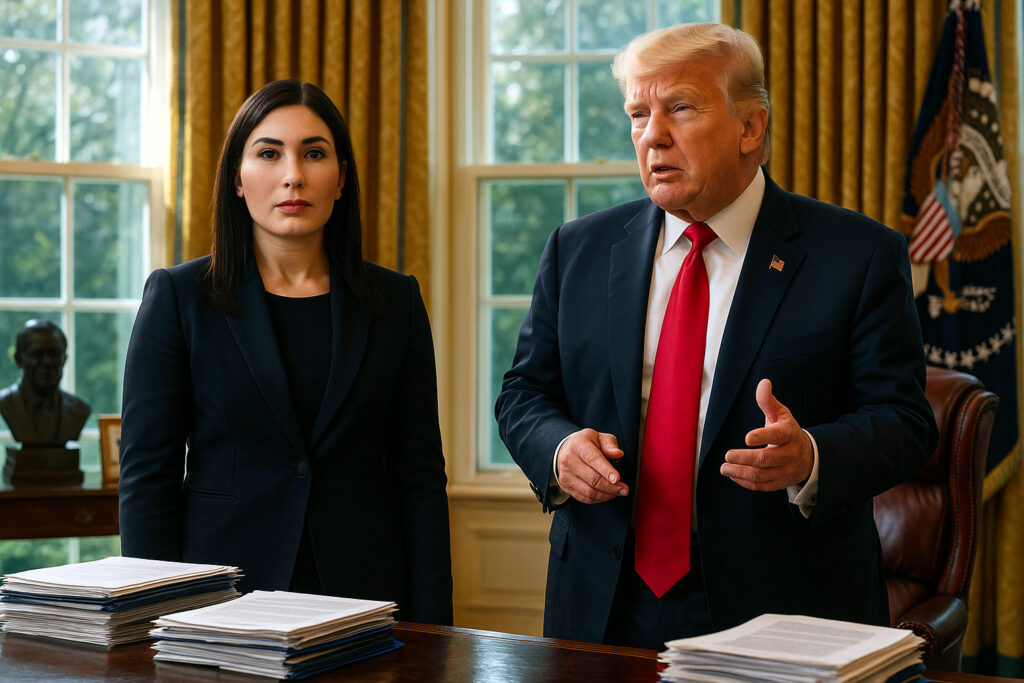 It’s May 2025, and Laura Loomer has gone from being a provocateur on the political margins to a force shaping the inner workings of the Trump administration. Once dismissed as a fringe figure, Loomer now holds significant sway over personnel decisions and policy directions at the highest levels of government.
It’s May 2025, and Laura Loomer has gone from being a provocateur on the political margins to a force shaping the inner workings of the Trump administration. Once dismissed as a fringe figure, Loomer now holds significant sway over personnel decisions and policy directions at the highest levels of government.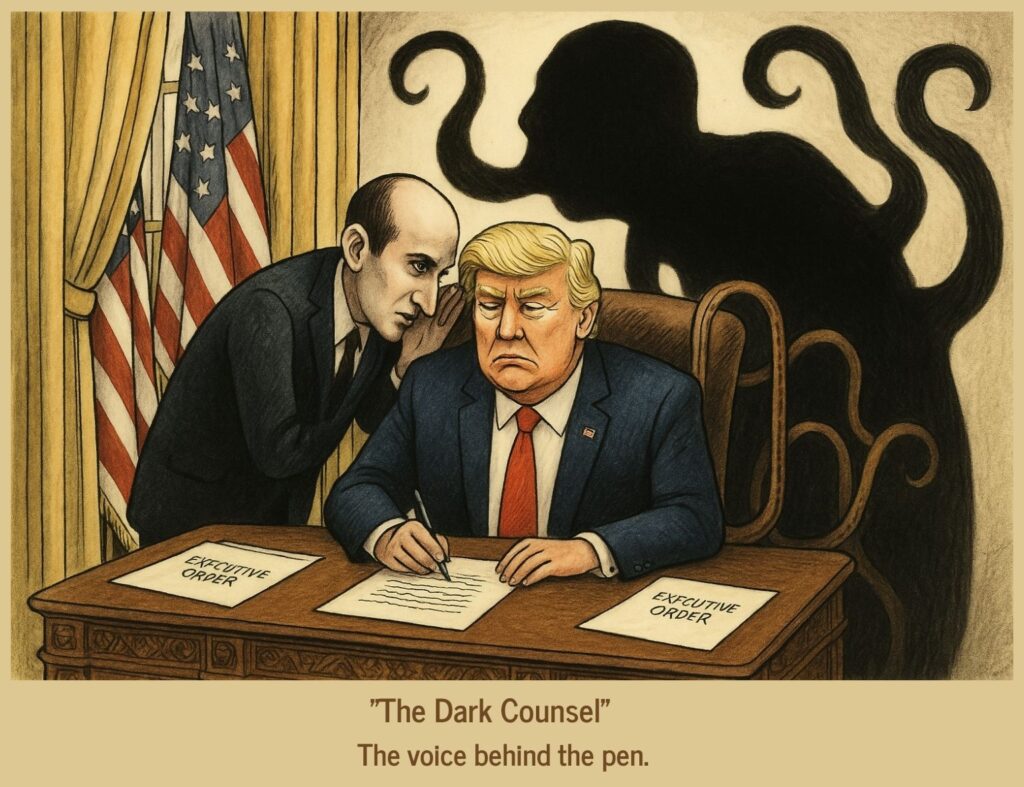 The Dark Counsel encapsulates the eerie influence of shadow advisors on executive power. Stephen Miller, whispering into Trump’s ear, symbolizes more than mere policy suggestion—it’s the unseen grip of ideology, bending the pen that signs executive orders. Looming behind them, the octopus-like shadow hints at something more sinister—tentacles stretching far beyond the room, pulling strings with unseen hands. The caption, “The voice behind the pen,” speaks to the unsettling notion that decisions made in the Oval Office might not be entirely those of the elected leader, but rather steered by the unseen hand of manipulation.
The Dark Counsel encapsulates the eerie influence of shadow advisors on executive power. Stephen Miller, whispering into Trump’s ear, symbolizes more than mere policy suggestion—it’s the unseen grip of ideology, bending the pen that signs executive orders. Looming behind them, the octopus-like shadow hints at something more sinister—tentacles stretching far beyond the room, pulling strings with unseen hands. The caption, “The voice behind the pen,” speaks to the unsettling notion that decisions made in the Oval Office might not be entirely those of the elected leader, but rather steered by the unseen hand of manipulation.

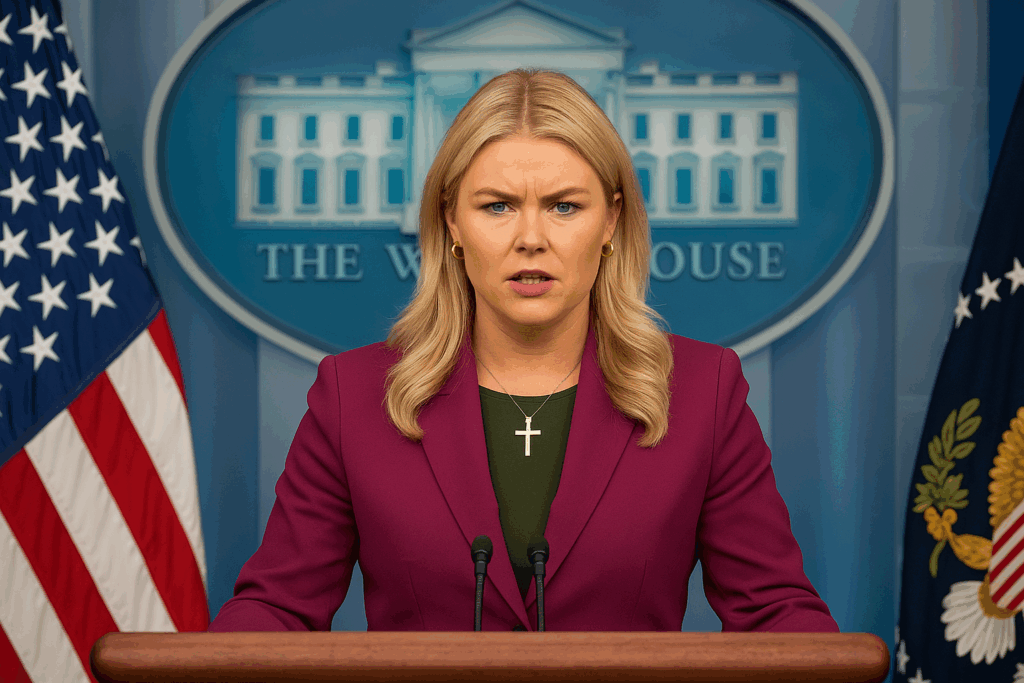
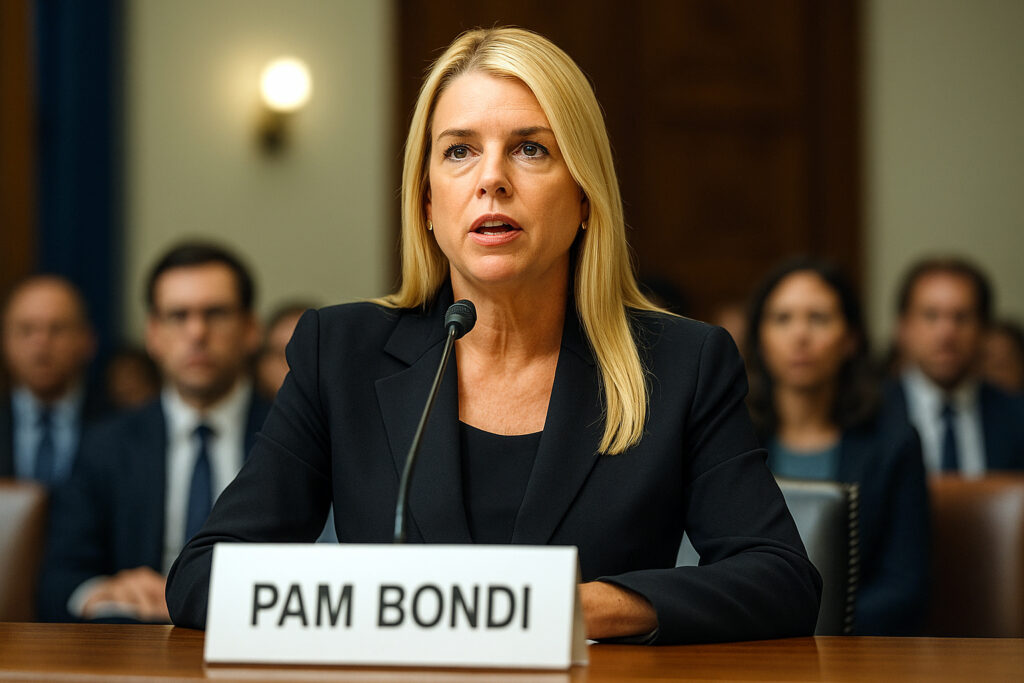
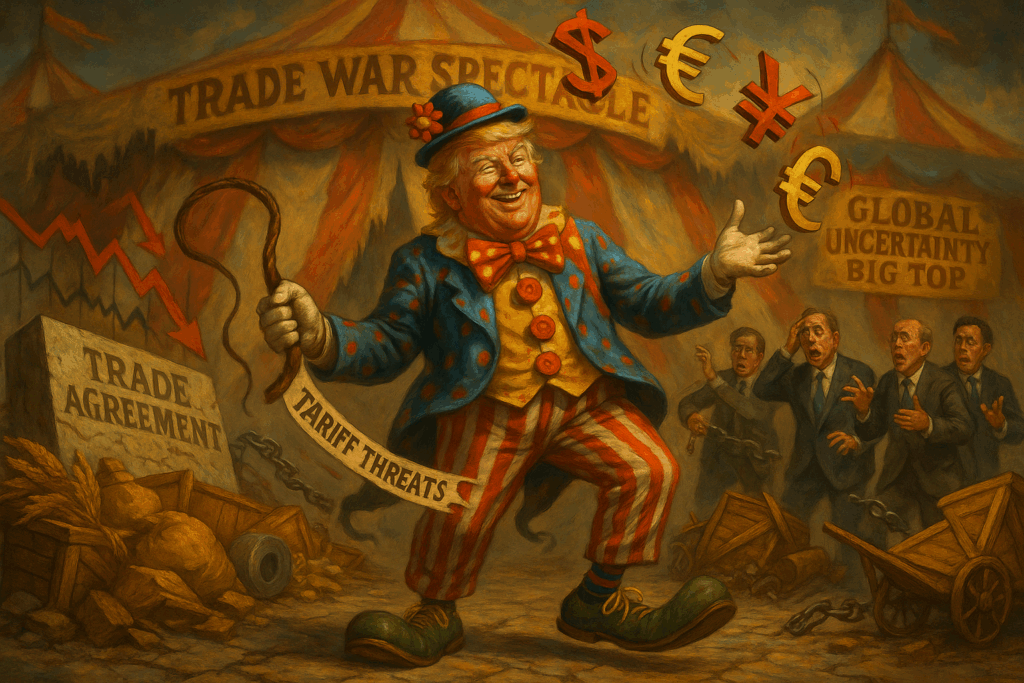 On May 8, 2025, in discussing President Trump’s trade policies on his show, Lawrence O’Donnell referred to the President as an economically illiterate clown at the center of his own trade war.
On May 8, 2025, in discussing President Trump’s trade policies on his show, Lawrence O’Donnell referred to the President as an economically illiterate clown at the center of his own trade war.
